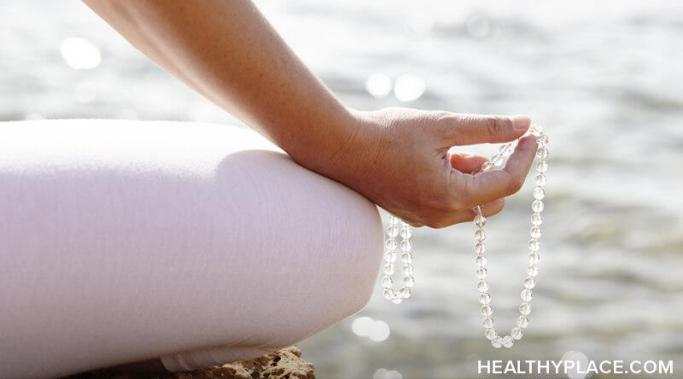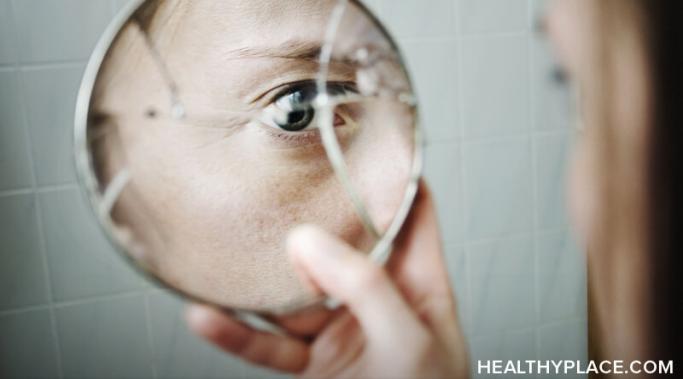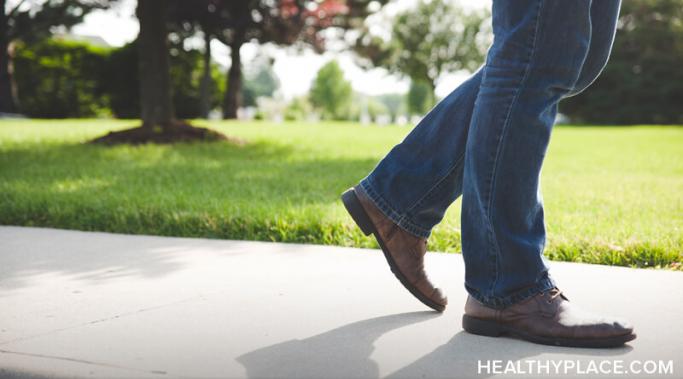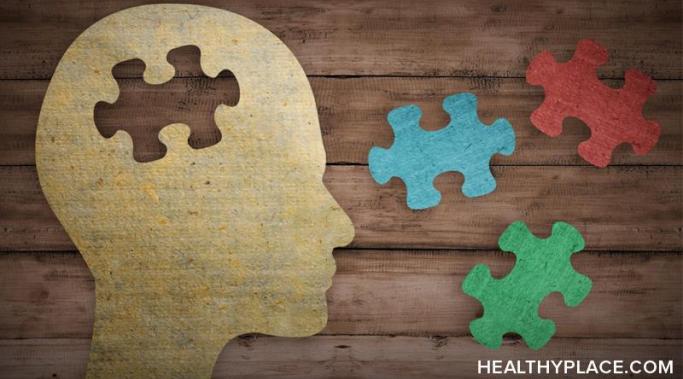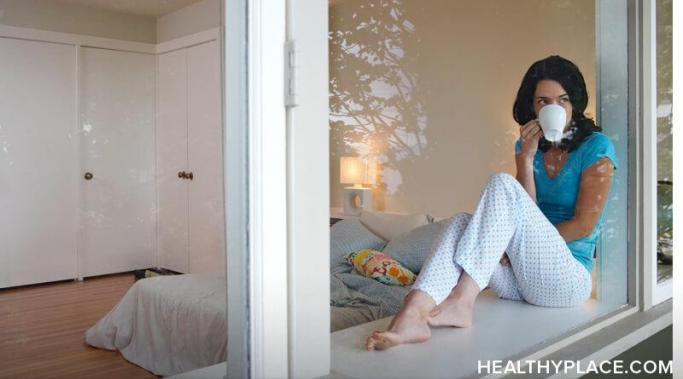A few months ago I underwent eye muscle surgery to better align my eyes. This is a problem I have struggled with since birth, so it really gave my confidence a boost to look in the mirror and see straight eyes. The surgery was elective and something I really had to ask for.
Recovery Issues
Unfortunately, stigma is real, and it's dangerous. It is visible in public, and it comes full circle affecting patients and professionals alike. Stigma keeps mental illness in the dark and misunderstood, and often prevents sufferers from seeking the help they need.
Mala beads may not help everyone, and, for me, dealing with my mental illness means medications come first. However, being open to learning additional methods to improve your life and functioning is also important. When you discover new and healthy ways to cope, go with it. Everyone is different, so use what works for you. I recently saw a post on Facebook about mala beads. I was intrigued and bought a necklace. I was excited when they arrived, and even though meditation had been difficult for me in the past, I was definitely willing to give it a try with my new mala beads.
I've resisted recovery for all kinds of reasons, including because I was sick of trying to be perfect. I spent most of my adolescence trying not to be like other teenagers, not to go through "phases" or be bad. I tried so hard to do things "right." When mental illness appeared in my life, I could barely do things at all, let alone do them "right," so I got angry.
Working benefits my mental illness recovery and has been an important part of my recovery. I love my current job, but even previous jobs that were stepping stones aided my mental health recovery. I've grown as a person because of them.
It's important to manage expectations in recovery because you don't want to strive for the impossible goal of simply not having a mental illness anymore. The truth is, recovery just doesn't work that way. The vast majority of us can't get rid of our mental illness entirely, but we can find ways to cope with it and reduce its impact on our lives. Recovery is about working with your brain to live the most functional, enjoyable life possible.
Most of us resist mental health recovery at some point because mental illness has become our identity. Who will we be without mental illness? This series of posts will address some different reasons for resistance, starting with a personal battle of mine: staying sick because it has become my identity.
No one wants to see their child develop mental health issues or suffer in any way. Oftentimes parents with mental Illness are asked if we fear we'll pass our illness down to our children. I've always thought there are worse things to fear. Still, I can't ignore genetics, and I know my daughter is at a higher risk of developing a mental illness because I have schizoaffective disorder. So I wonder, is there a way to try to prevent it from happening? Or is my time better spent preparing her for the possibility?
Having a mental health recovery-friendly home is important because an important piece of mental illness recovery is feeling safe -- and if you're lucky -- relaxed. We can't always control our environment and surroundings, but I do think there are ways to arrange and organize your home to aid your mental health recovery. Here are seven ways to make your home more mental health recovery-friendly. They are not major changes, just simple ideas that might make a difference.
Nothing is better than a snow day - nowhere to go, nothing in particular to do. Do I catch up on tasks around the house or go back to bed? My Keurig is calling. I dump a bunch of sugar in my tea and take a seat by the window. Our street is lost in the snow. The outside world can wait. My day is free and full of possibilities. Time for a little extra self-care. Spending a day at home can be a great way to recharge. Here are four activities I did during the snow storm today.


